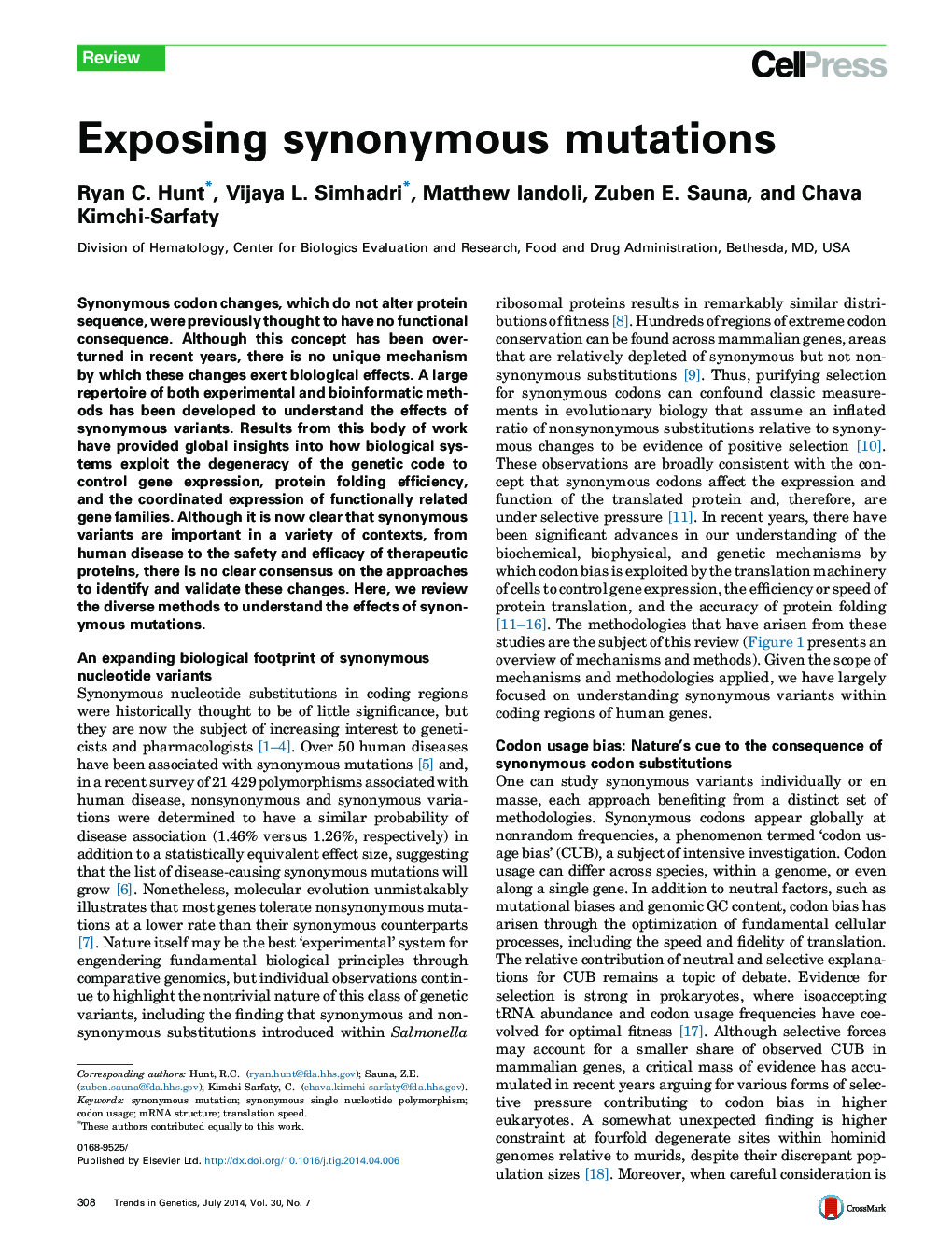| Article ID | Journal | Published Year | Pages | File Type |
|---|---|---|---|---|
| 2824812 | Trends in Genetics | 2014 | 14 Pages |
•Synonymous mutations, which do not result in a change in amino acid sequence, have been considered biologically silent.•Studies in molecular evolution show that synonymous codons are under selective pressure.•Synonymous mutation may affect the function of translated protein through diverse cellular mechanisms.•Multiple methods should be applied to investigate synonymous variants and decipher the exact mechanisms by which they impact biological function.
Synonymous codon changes, which do not alter protein sequence, were previously thought to have no functional consequence. Although this concept has been overturned in recent years, there is no unique mechanism by which these changes exert biological effects. A large repertoire of both experimental and bioinformatic methods has been developed to understand the effects of synonymous variants. Results from this body of work have provided global insights into how biological systems exploit the degeneracy of the genetic code to control gene expression, protein folding efficiency, and the coordinated expression of functionally related gene families. Although it is now clear that synonymous variants are important in a variety of contexts, from human disease to the safety and efficacy of therapeutic proteins, there is no clear consensus on the approaches to identify and validate these changes. Here, we review the diverse methods to understand the effects of synonymous mutations.
